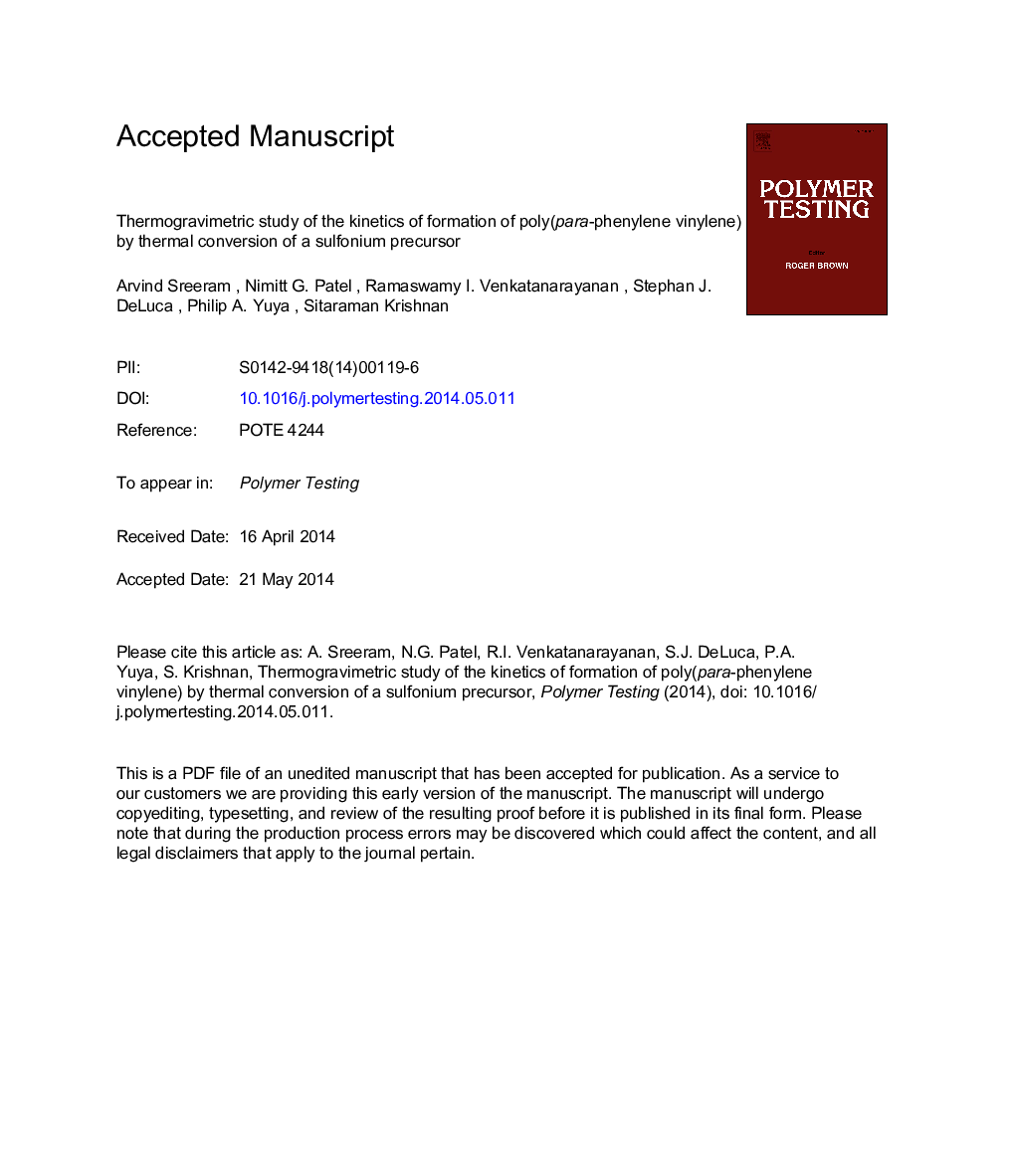| Article ID | Journal | Published Year | Pages | File Type |
|---|---|---|---|---|
| 5206400 | Polymer Testing | 2014 | 31 Pages |
Abstract
Poly(p-phenylene vinylene) (PPV) conjugated polymer films were prepared by thermolytic conversion of poly[p-phenylene (tetrahydrothiophenium)ethylene chloride] precursor films, at different temperatures. The reaction kinetics was investigated by isothermal thermogravimetry. Each conversion temperature was found to be associated with an asymptotic value of mass loss. A mathematical analysis relating molar conversion to asymptotic mass loss was derived. The activation energy for dehydrochlorination of the poly(p-phenylene chloroethylene) intermediate was found to be 59 ± 7 kJ molâ1, significantly lower than that for the dehydrochlorination of poly(vinyl chloride) (PVC). The reaction order, on the other hand, was nearly first-order, similar to that for PVC. Film processing conditions that gave conjugated polymer films free of carbonyl defects were identified.
Related Topics
Physical Sciences and Engineering
Chemistry
Organic Chemistry
Authors
Arvind Sreeram, Nimitt G. Patel, Ramaswamy I. Venkatanarayanan, Stephan J. DeLuca, Philip A. Yuya, Sitaraman Krishnan,
